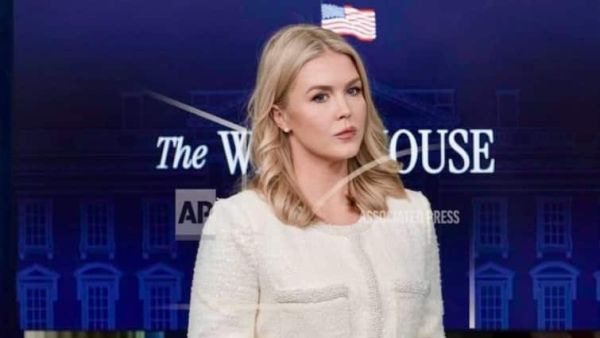
The Trump administration is preparing to legally defend its new H-1B visa regulation, which introduces a steep $100,000 fee for new applicants. The policy has triggered multiple lawsuits from business groups, unions, and advocacy organizations across the country ever since it was announced.
White House Press Secretary Karoline Leavitt on Thursday (local time) said the administration believes the H-1B system has long been misused, resulting in lower wages for American workers. She stressed that the new rules are designed to safeguard US jobs and eliminate fraud within the visa program.
“The administration will fight these lawsuits in court. The president's main priority has always been to put American workers first and to strengthen our visa system. For far too long, the H-1B visa system has been spammed with fraud, and that's driven down American wages. So the president wants to refine this system, which is part of the reason he implemented these new policies. These actions are lawful, they are necessary, and we'll continue to fight this battle in court,” Leavitt told reporters during a White House press briefing.
US Chamber Of Commerce Files Case Against Trump Administration Over Visa Fee
Her remarks follow a lawsuit filed by the US Chamber of Commerce challenging the legality of the $100,000 H-1B petition fee. Additional lawsuits have been lodged in federal courts in California and Washington, DC, with groups representing unions, employers, and religious organizations arguing that the fee is unlawful and detrimental to US industries.
The Chamber’s case claims the new fee violates the Immigration and Nationality Act, which limits visa-related charges to actual government processing costs. In its official statement, the Chamber called the measure an unnecessary financial hurdle for many American businesses.
“The new $100,000 visa fee will make it cost-prohibitive for U.S. employers, especially start-ups and small and midsize businesses, to utilize the H-1B program, which Congress created expressly to ensure that American businesses of all sizes can access the global talent they need to grow their operations here in the U.S.,” said Neil Bradley, Executive Vice President and Chief Policy Officer at the U.S. Chamber.
“President Trump has embarked on an ambitious agenda of securing permanent pro-growth tax reforms, unleashing American energy, and unravelling the overregulation that has stifled growth. The Chamber and our members have actively backed these proposals to attract more investment in America. To support this growth, our economy will require more workers, not fewer,” he added.
A broad coalition of unions, educators, and faith-based organisations has filed additional suits, labelling the administration’s decision “arbitrary and capricious.”
The H-1B visa program enables US companies to recruit highly skilled foreign professionals, particularly in technology and engineering fields. The new $100,000 fee marks a dramatic increase from current processing expenses, which typically run a few thousand dollars. The administration has yet to determine whether the payment will be collected upfront or annually, adding uncertainty for employers already grappling with higher costs.
Industry analysts warn that the policy could hit the US tech sector hard, especially affecting Indian IT professionals who make up the largest share of H-1B recipients. Businesses, including tech giants like Amazon, Microsoft, and Google, are expected to feel significant repercussions, with some potentially scaling back or abandoning the program altogether.
(With inputs from news agency ANI)
-
Who are Srikanth and Krishna Kumar? Actors who have landed in a legal trouble because of…

-
Bigg Boss 19: Amaal Malik lashes out at Tanya Mittal after exposing her gameplay, ‘Ye sochti hai ghar…’

-
Ek Deewane Ki Deewaniyat Emerges A Box Office Hit; Makes More Than Its Budget In Just 3 Days

-
Private bus operators flouting rules will face strict action, warns Telangana Transport Minister

-
The 1 overlooked car part fitted on every UK car that could hit drivers with £1,000 fine
